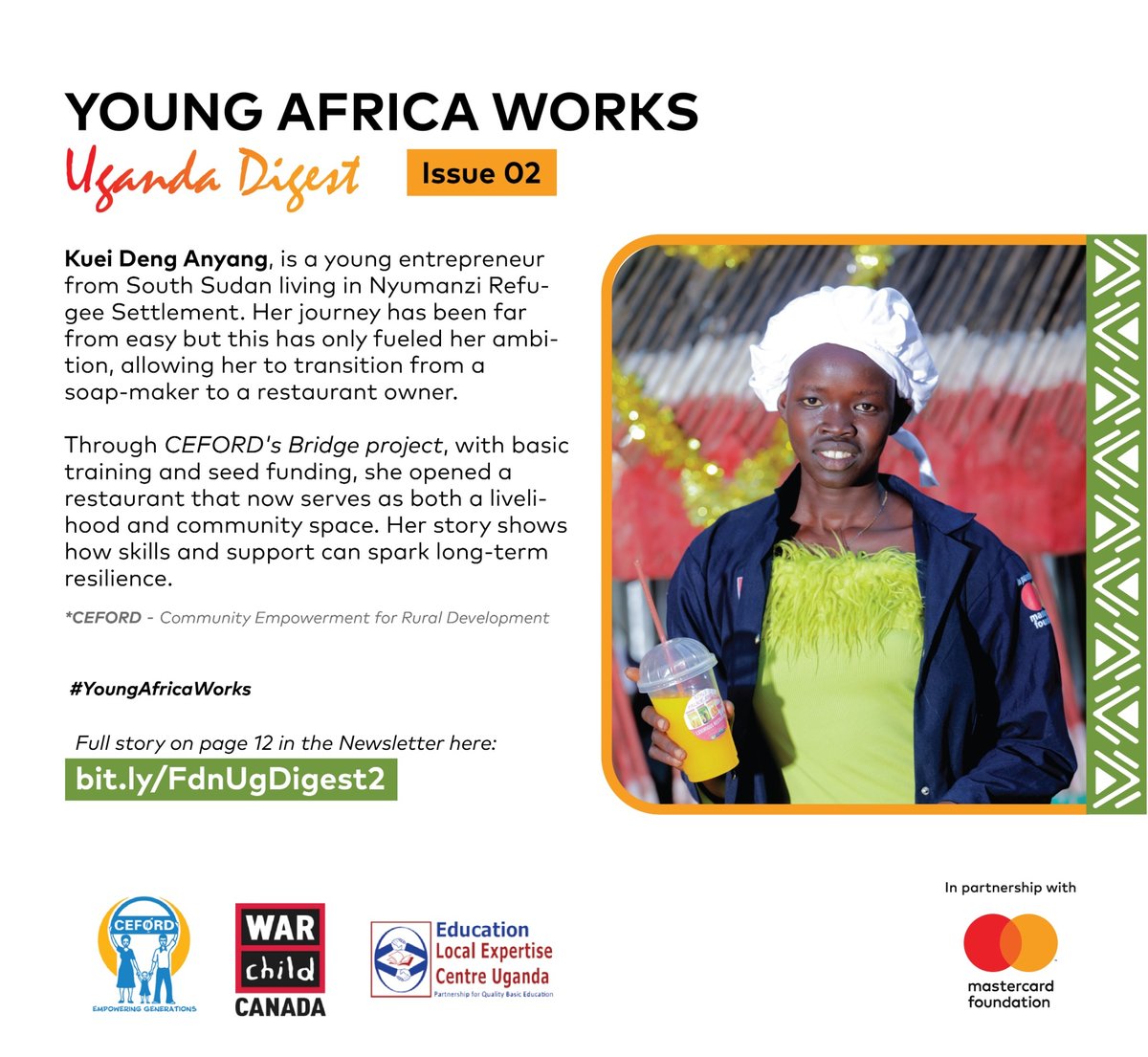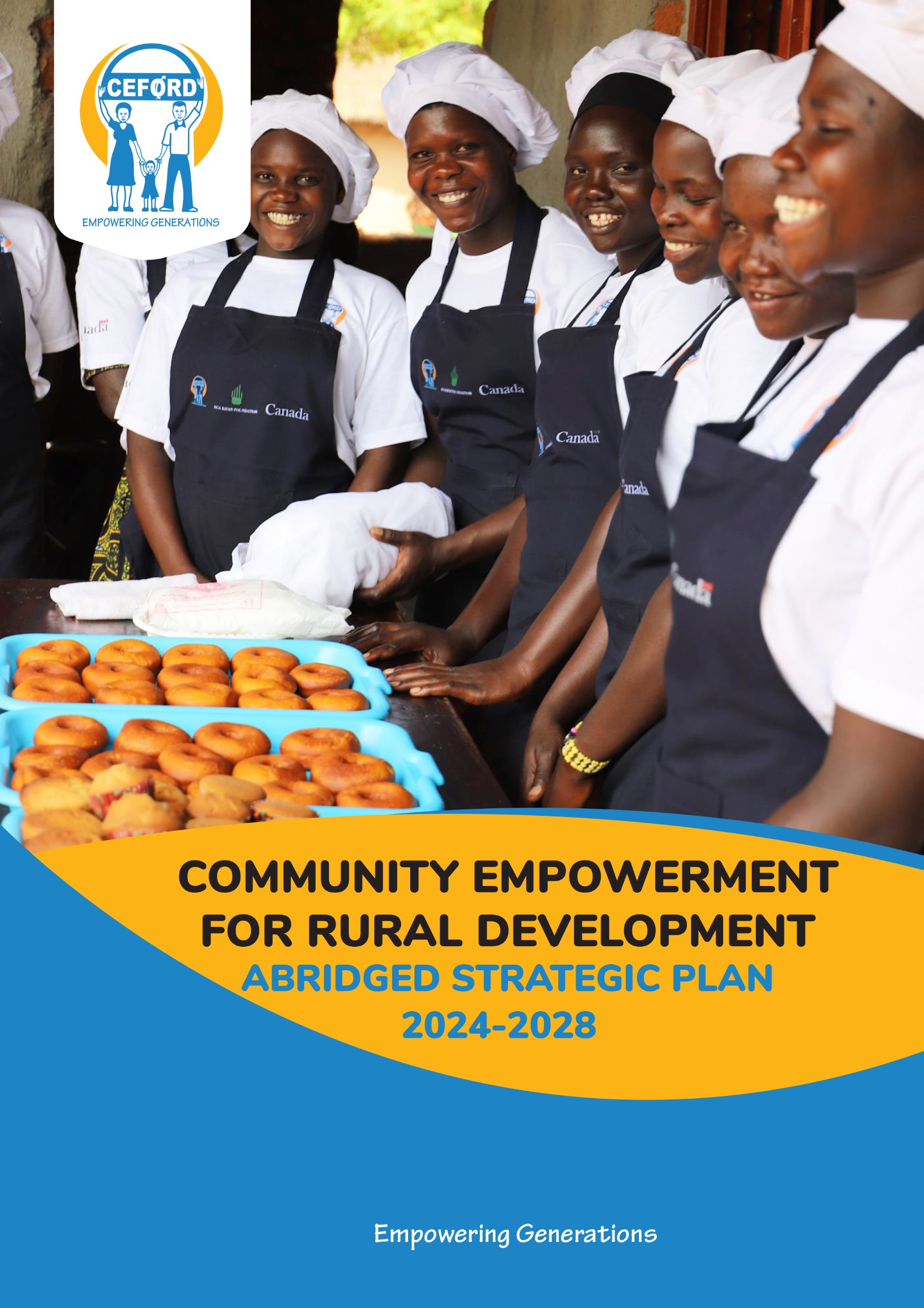In Obolokofuku West Cell, Tanganika Ward, Central Division of Arua City, lives a woman whose story echoes resilience, transformation, and hope. Lenia Mildred, a 43-year-old woman with a visual impairment, was once underestimated and marginalized. Today, she is a respected entrepreneur, trainer, and mother of six, running five diverse businesses and raising her household through savings in VSLA, skills and self-belief. “I used to fear speaking in public,” Lenia recalls. “People looked at me and only saw my disability. I was treated as someone useless. But now, I speak confidently before many people. That fear is gone.”

Lenia’s journey began when she joined the Future Foundation Y/VSLA Group supported by CEFORD & CARE international in Uganda with funding from the Austrian Development Cooperation (ADC). The Project gave her access to training in business and soft skills. In 2022, Lenia through her group saved diligently and received a share-out of 804,000 UGX. Guided by training and mentorship, she invested 450,000 UGX in a weaving machine purchased from Kampala, 354,000 UGX in a grocery business at her home near Jiako Primary School. “When the weaving machine arrived, a neighbor brought her daughter to learn,” she said proudly. “I trained her for 400,000 UGX. That was the beginning of my journey as a trainer.”

Lenia’s reputation as a skilled weaver grew. She secured a contract with Bright View Nursery and Primary School to supply school pullovers, a partnership that remains active to this day. “I never imagined I would become a TOT (Trainer of Trainers) in weaving. Despite having one eye, I can do it all. I’ve now trained three women, and they’re resilient in their own homes.”. By 2023, her savings share-out had grown to 1,300,000 UGX. With additional profits from pullover sales, she started a Mobile Money business in Rippons Jiako Trading Centre investing a total of 2,100,000 UGX. She registered the business under her name and became an official MTN agent . “The Business Skills Training helped me think differently,” Lenia shared. “Using the five-finger entrepreneurial questions, I saw a gap in mobile money services in my area and I filled it.”. Today, her mobile money venture offers airtime, deposits, withdrawals, and float making digital finance more accessible in her community.
In 2024, Lenia’s savings reached 1,720,000 UGX. She used this to invest in poultry and rabbit rearing. Today she keeps 204 broiler chickens (sold at 17,000–18,000 UGX each), 22 Indian local breed chickens (sold at 60,000–70,000 UGX each) and 60 rabbits (sold at 18,000–20,000 UGX per pair). “The Soft Skills training helped me build business friendships. I now order chicks from Kampala City and sell them at a profit,” she said. “It taught me communication, networking, and goal setting. I’m not just saving money; I’m building a future.” Lenia’s financial independence has also reshaped her household dynamics.“ I now share responsibilities with my husband,” she explained. “We have six children, five boys and one girl. He pays school fees for three, and I pay for the other three and I also support an orphan in the community.” She credits her journey to the knowledge, mentorship, and belief instilled through the project. Thank you for believing in people like me,” she said, with emotion in her voice. “Disability does not mean inability. I’ve found my voice, my power, and my place in this world. My advice is simple,” she says. “Start small. Save something. Learn every day. And never let your challenges define you. If I can do it, so can you.”

Lenia’s story is more than a personal triumph it is a powerful window into what becomes possible when marginalized women, girls, and youth are equipped with the right tools and support. Across Central Division in Arua City and Omugo Subcounty in Terego District, 85 individuals (69 women and 16 men) have so far been trained in business skills, soft skills, financial literacy, gender equality, and leadership. As a result, women and youth are launching businesses, joining savings groups, and actively influencing decisions in their households and communities.
This transformation is being made possible through the Gender Equality and Resilience (GEAR) Project, implemented by CEFORD in partnership with CARE International in Uganda, with funding from the Austrian Development Agency (ADA) through CARE Austria. The five-year initiative (April 2024 – March 2029) seeks to empower women and youth especially those aged 15 to 35 to lead self-reliant, resilient lives in inclusive and supportive environments. In Uganda, the project serves both host and refugee communities, sparking sustainable change in areas like Omugo Zone, part of the extended Rhino Camp Refugee Settlement. Women like Lenia are not just beneficiaries they are changemakers who are rewriting their stories and helping reshape their communities for the better.




